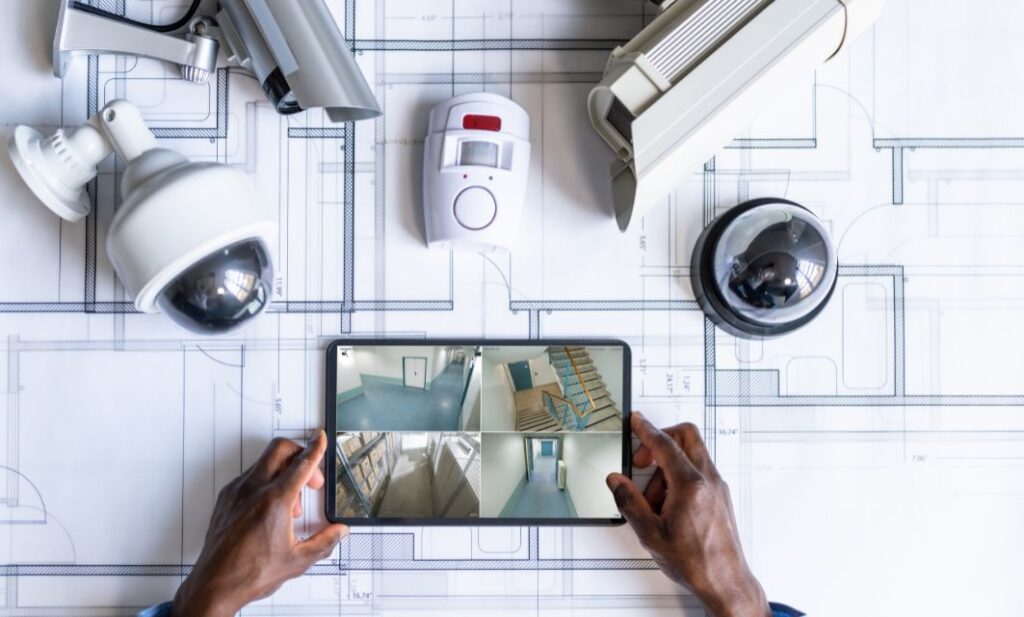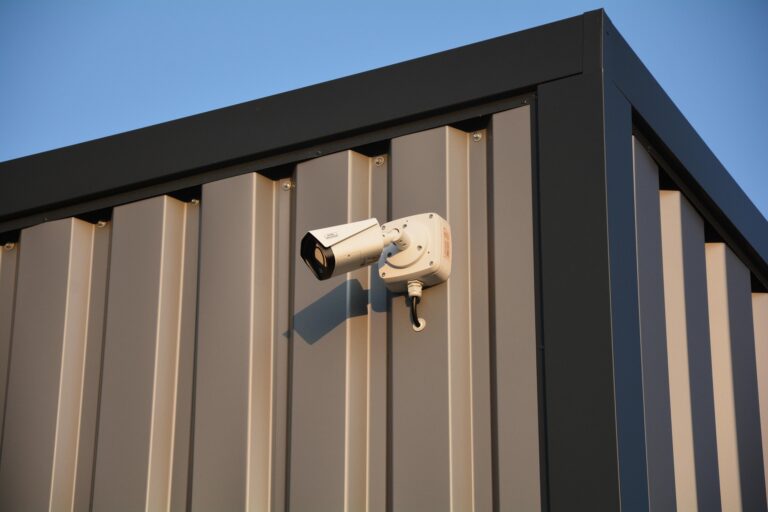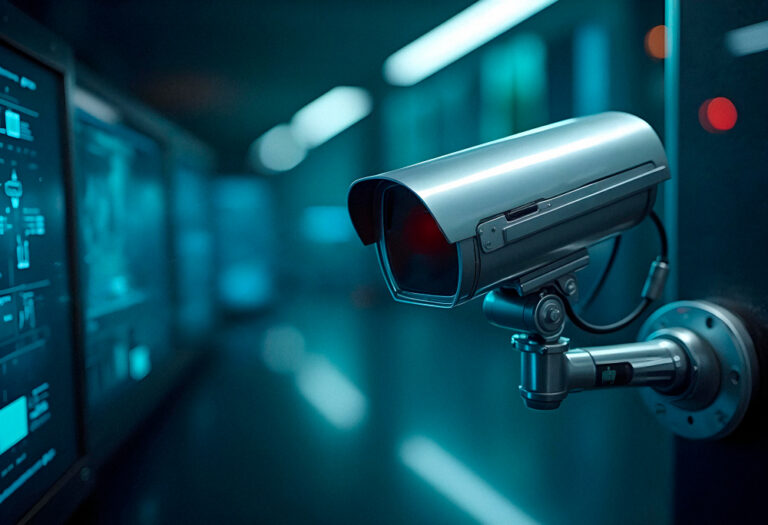Intruder Alarms

Don't take security for granted; be alert...24/7
Don't take security for granted; be alert...24/7
Break-ins, theft, and vandalism can lead to the loss of goods, equipment, and property damage, disrupting businesses and homes, and lowering the confidence of those who work or live on-site. A burglar alarm provides 24/7 protection by deterring intruders, sounding an alarm, and even activating visual warnings like flashing lights.
We use the very best technology to help minimise false alarms: from vibration, lighting and acoustic detectors to magnetic reed contacts which detect compromised windows and doors.
A range of monitoring technology is also available, such as digital landlines or wireless and BT Redcare. And should these channels be unavailable for any reason, GSM communications (which work via a mobile phone network) can be configured as a back-up.
Alarm systems can be both wired and wireless, with more and more organisations choosing wireless systems both from and aesthetic point of view, minimum disruption and ease of installation and flexibility.
We can also set up your system to automatically inform an approved alarm receiving centre if security is breached. In turn, the centre will alert the police or contact an assigned person such as a key holder, third party security firm or monitoring centre.
Intruder Alarms Installation
At ai-security, we specialise in providing top-tier intruder alarm installation services that ensure the safety and security of your property. Whether you are looking to safeguard your home or business, our expertly designed systems offer reliable protection against unauthorized access, providing peace of mind 24/7.

Types of Alarms
Based on EU standards for intruder alarms (EN50131), all businesses have to conform to specific grading that determines the level of protection and type of equipment used.

Grade 1
This is the lowest grade alarm system, suitable for an area of extremely low risk. For commercial premises this grade is rarely ever recommended.

Grade 2
These are higher level systems and hare recommended mostly for households or very small commercial premises. The assumption with this type of system is that the intruder has some knowledge of alarms and disarming them.

Grade 3
Grade 3 systems are more advanced than grade 2 systems, with detectors using anti-mask technology to prevent them from being covered and inhibiting normal operation. This grade is mainly used for commercial premises that have a medium to high risk of being burgled.

Grade 4
This is the highest level of alarm system available and works under the assumption that the intruder has sophisticated knowledge of alarm systems. These are only recommended for extremely high security premises as they are expensive and complex.
Benefits
Deterrent to potential intruders
Intruder alarms that are visible deter potential thefts and security breaches from occurring.
Intruder disturbance
If an intruder does manage to get through initial security measures, sensors set up near high value or important areas will get triggered resulting in intruders being disrupted. It is likely that they will leave whatever they have come to steal and make a run for it.
Reduced insurance costs
Insurance companies offer discounts on premiums to insure properties that have the tightest of security measures. Adding intruder alarms can therefore reduce your company’s insurance bills. All our systems are NSI Insurance Approved.
24/7 monitoring
Intruder alarms are pre-set and activated at all times allowing for round- the-clock monitoring. Any breach will instantly trigger an alarm and notify the relevant people.
Fire alarms can detect the exact location of fire breakouts
Addressable and wireless systems pinpoint the exact location of the fire allowing for minimal wastage of time.
Wireless systems
Wireless systems have the capacity to add on functionalities to detect smoke, gas leaks or flooding which have a very high sensitivity to these elements, instantly triggering the alarm.
Our Security Clients Across The UK



At AI-Security we cover London, Essex, Hertfordshire, Surrey and Kent. We will ensure that no matter where you are, your intruder alarm system is installed to provide maximum security and protection for your property.





Our Security Blog

How Will CCTV Actually Help My Essex Business in 2025?
Look, I get it. Running a business in Essex right now feels like you’re constantly

How to Secure Your Essex Warehouse
If you’re managing a warehouse in Essex, you already know how important your location is.

What’s the True Cost of Business CCTV in Essex?
If you’re running a business in Essex and looking into CCTV costs, you’ve probably seen

Contact the
ai-security team
To learn more about ai-security or to enquire about our school security services, call 01702 476700 today or leave an enquiry. We proudly offer our services across the UK, including in London, Essex and the Home Counties.
Intruder Alarms FAQ
What are the 2 types of intruder alarms?
There are 2 types of intruder alarms:
Wired Intruder Alarms: These are physically connected by wires. They are more reliable as they are less prone to interference and don’t need batteries. However installation is more complex and costly as it requires running wires throughout the property.
Wireless Intruder Alarms: These use radio frequencies or Wi-Fi to communicate between the sensors and the control panel. Wireless alarms are easier to install, more flexible in placement and less invasive as they don’t require drilling or extensive wiring. However they rely on batteries which need to be checked and replaced regularly.
Do intruder alarms work?
Yes, intruder alarms deter burglaries and alert the homeowner or security services to a potential break-in. Studies show that properties with visible alarm systems are less likely to be targeted by burglars. Modern intruder alarms often have features like loud sirens, automatic notifications to the homeowner or a monitoring service and sometimes direct to the police which can prevent or minimize damage during a break-in.
What’s the best alarm system in the UK?
The best alarm system in the UK depends on your needs but some of the top ones are:
Verisure: 24/7 monitoring and advanced security features including smart alarms with remote control via an app.
ADT: Full range of security solutions with professional monitoring and fast response times.
SimpliSafe: Flexible DIY option with no long term contracts, customizable packages and smart home integration.
Yale Smart Home Alarm: Popular DIY option with smart features and integration with other Yale security products.
Risco: Wired and wireless systems with professional monitoring and smart home integration.
These are well regarded for their reliability, ease of use and customer support.
How do I stop my neighbour’s house alarm?
If your neighbour’s house alarm is going off and it’s causing a disturbance you can:
Check for an Emergency: First check if there’s an actual emergency. If you think it’s a break-in call the police immediately.
Contact Your Neighbour: If you have their contact details try contacting them to let them know their alarm is going off.
Notify the Authorities: If the alarm continues to sound and you can’t reach your neighbour contact the local police or the noise complaint line for assistance. They may be able to contact the homeowner or take action if the noise is persistent.
Keep Records: If the alarm becomes a recurring problem keep a record of when it happens and what you’ve done. This can be useful if you need to make a formal complaint.
How much does a home alarm system cost in the UK?
ADT’s monthly monitoring fees in the UK are £30 to £50 per month depending on the level of service and features. This includes 24/7 professional monitoring, response services and sometimes smart home integration or fire monitoring. The price may vary depending on the package and any promotions or discounts available at the time of purchase.
Do alarm systems really deter burglars?
Yes, alarm systems are a proven deterrent against burglars. Studies show that properties with visible alarm systems are less likely to be targeted by burglars. The presence of an alarm system increases the risk for the intruder, both in terms of being caught and the time it takes to break in, which makes the property less appealing to criminals.
What is an intruder alarm system?
An intruder alarm system is a security setup that detects unauthorized entry into a building or area. The system consists of sensors at entry points (doors and windows), motion detectors and a control panel that sounds an alarm when a breach is detected. The alarm may be a loud siren, a silent alert to the homeowner or a notification to a monitoring service that can take further action, such as contacting the police. Intruder alarm systems protect against theft, vandalism and other security threats.
How does an intruder system work?
An intruder system, also known as a burglar alarm system, detects unauthorized entry into a building or area and alerts the occupants or authorities. Here’s how it works:
Sensors: The system uses various sensors such as door/window contacts, motion detectors and glass break sensors. These sensors are placed at key points around the property to detect when doors or windows are opened or when movement is detected inside the premises.
Control Panel: The control panel is the brain of the system. It receives signals from the sensors and decides if an alarm should be triggered. The control panel is where the system is armed or disarmed using a keypad, remote or smartphone app.
Alarm Activation: If a sensor is triggered while the system is armed the control panel sounds the alarm. This could be a loud siren to deter the intruder and alert occupants or a silent alarm that notifies the homeowner or a monitoring service without alerting the intruder.
Notification: In more advanced systems the control panel can send notifications to the homeowner’s phone or to a monitoring service which can then take further action, such as contacting the police.
Response: Depending on the system the response can include automated notifications to emergency services, alerts to a security company or simply an alarm to scare off the intruder.
Is it worth getting a burglar alarm?
Yes, getting a burglar alarm is worth it for:
Deterrence: Burglar alarms are a strong deterrent to potential intruders. Visible alarms or signs that a property is protected by an alarm system reduces the chances of it being targeted.
Peace of Mind: Knowing your home or business is protected gives you peace of mind especially when you’re away from the property.
Insurance Benefits: Some insurance companies offer discounts on home insurance premiums if you have a professionally installed and monitored alarm system.
Protection: In the event of a break-in an alarm system can minimize damage and loss by alerting you or the authorities quickly.
Do alarms deter burglars in the UK?
Yes, alarms do deter burglars in the UK. Studies and surveys show that burglars are less likely to target properties with visible alarm systems. The risk of triggering an alarm increases the chance of getting caught and alarm protected properties are less attractive to criminals. Just the presence of an alarm system or even just a sign that one is in place can reduce the chances of a burglary attempt.
Do police respond to home alarms in the UK?
Police in the UK do respond to home alarms but the response depends on the type of alarm and whether it’s monitored or not. Here’s how it works:
Monitored Alarms: If you have a monitored alarm system the monitoring company will try to verify the alarm before contacting the police. If they determine it’s a genuine threat they will notify the police who will then respond.
Unmonitored Alarms: For unmonitored systems the police are less likely to respond unless there is additional verification, such as a neighbour confirming suspicious activity. Many forces won’t respond to alarms unless they are verified as genuine to avoid false alarms.
Confirmed Alarms: Some police forces have a “confirmed alarm” policy where they only respond if the alarm has been triggered by two independent sensors (e.g. a door sensor and a motion detector) or if there is visual verification through CCTV.